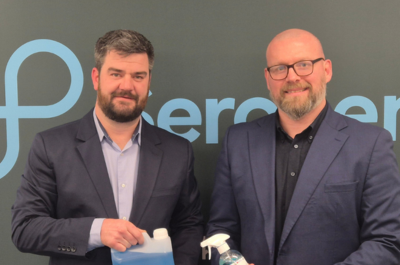Directors at a Shropshire fostering agency believe the move to a trauma-informed therapeutic approach of supporting children and young people, has been key to its success and sustainability.
Shrewsbury based New Chapters Fostercare (NCF) was established by Craig Walton, Martin George and Rosie Cavalot in 2014. Seven years ago, the organisation adopted PACE; a model developed by clinical psychologist Dr Dan Hughes; with the aim of enabling adults to build safe, trusting and meaningful relationships with children and young people who have experienced trauma.
In short, PACE stands for:
- Playfulness – a playful stance adds elements of fun and enjoyment to day-to-day life and can diffuse a difficult or tense situation.
- Acceptance – a child’s inner life is not right or wrong, it simply is. Acceptance of this is at the core of their sense of safety.
- Curiosity – how, without judgement, children become aware of their inner life and reflect upon the reasons for their behaviour.
- Empathy – through empathy a carer demonstrates that they know how difficult the experience is for a child and that they will not have to deal with it alone.
Julie Brown, a former secondary school SEN support worker and qualified counsellor, has been approved as a foster carer for NCF since 2017. She said: “I joined NCF when the therapeutic model had just been adopted by the agency and I soon realised the efficacy of the training provided by NCF which embraces ‘connection before correction’ where, for example, rather than jumping in to immediately correct a child’s behaviour, an understanding of what the child needs from the foster parent, is first sought. Since then, I can see how the agency overall has benefitted from the approach. Looking after everyone associated with NCF is what it does exceptionally well.”
NCF director Rosie Cavalot qualified as a psychotherapist in 2015. During the agency’s move from a solutions-focussed model to PACE, she completed levels one and two in Dyadic Developmental Psychotherapy and now practises using a DDP informed approach. Rosie said: “While there are several approaches including CBT (cognitive behavioural therapy), EMDR (eye movement desensitisation and reprocessing) and psychodynamic therapy - unconscious processes as they are manifested in the client's present behaviour - we felt that from our own experiences of working in the sector prior to establishing NCF, the trauma-informed model was the best way forward. It has not only helped to identify early trauma and thus develop safe and secure relationships between our carers and their children, but enabled positive working relationships between our staff, carers and social workers, which in turn has led to high retention rates within NCF and two ‘outstanding’ Ofsted reports. It is not only an excellent parenting model, but one we have adopted and developed to run a successful business.”
For more information about NCF visit: www.newchaptersfostercare.co.uk.
Picture (left to right): Rosie Cavalot, director, NCF and Julie Brown, foster carer.












Latest News